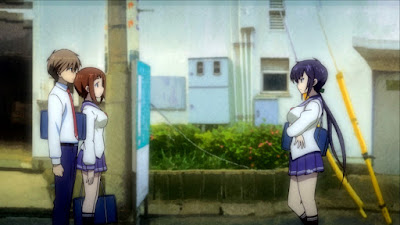How an Anime or Manga gets Licensed
 |
| Don't look deeper into it, I just wanted an excuse to post pictures of Madoka Magica (an AWESOME unlicensed series) |
Have you ever wondered how an anime or manga gets licensed in the United States? Licensing is a popular method to release anime and manga in the USA until a Japanese producer will determine that it is easier and more profitable for them to open up directly-owned production firms in the United States sometime in the future. For a product to get licensed in the USA, an anime or manga goes through a process by the domestic licensor to determine if the license is feasible. Once they have determined feasibility they will go to the Japanese producer and start negotiating. After the negotiations are done, a contract is written and a product is officially licensed. How an anime or manga is licensed and then subsequently released is interesting, I hope you will learn a little bit on the process. While I say “United States,” the example could easily be Germany, United Kingdom, the Philippines, Korea, and many more because the process of licensing anime and manga is also similar in Europe and in the rest of Asia.
How anime or manga gets licensed in the United States is very similar to other industries out there. First the American licensor will determine if an anime has a market in the United States. What metric companies like Funimation, Sentai, Viz Media, Kodansha USA, NIS America, Yen Press, and Bandai use are internal corporate secrets. Each company uses a variety of ways to determine if there is a market, they scour the internet message boards and they also see what is popular in various other download portals. What is popular in fansub and scanlation community is not indicative that a product will sell. Bandai learned it with Love Hina and The Melancholy of Haruhi Suzumiya. These two series were extremely popular with the anime community and they were downloaded lots of times. Once the product was released in the USA, anime sales fell far below expectations. For any company, using a combination of observation, personal intuition, and sales data will determine what the market is and if there is a market at all in the United States. There are many good series that are not released because the market is too small to be profitable. If there is no market, there will be no product released.
After an American licensor determines that the franchise has a potential market in the States, they then reach out to the Japanese producer of the anime and manga. If there is another American licensor who is interested, they may engage in a bidding war with the other potential licensor. Once a Japanese company is pleased with the licensing bid, they will write up a contract to sign with the licensor. Until the contract is written, both parties can withdraw from discussion if they do not feel that they do not benefit from the contract. For an anime and manga, there is typically a fixed cost, which is the price to license the anime or manga. They also have variable costs which is the costs to create each volume (paper, binding, distribution, etc) along with giving the Japanese producer a cut of sales. There can also be step costs, where after selling 30,000 copies that the licensor will have to pay the Japanese producer an extra $100,000 dollars. What the American licensor pays is determined by the deal made in the contract. The American licensor will use a variety of management accounting methods to determine if a product can be profitable with the sales projections.
 |
| You have to make a contract, get the joke? (for the Puella Magi Madoka Magica fans) |
After the contract is made, a series is officially licensed in the United States. The company can announce its license as soon as they get it, or they could hold on to the license announcement until they are ready to announce it to the press (aka Anime News Network) or Anime Conventions (Anime Expo, Otakcon, SakuraCon, Fanime, etc.). The company licensing it has every right to prosecute groups illegally distributing it since they technically “own” the rights of the product. With the license they can release the product or refuse to release it. A company can sit on a license and not release a single anime or manga. Most of the licensed products do find its way on the shelves eventually, and hopefully find a captive and buying audience.
That’s how a license is made for anime and manga series. They first determine if there is a market to buy the product. After that, the American Licensor reaches out to the Japanese Producer and will start working out a contract. The contract places limitations on time and other restrictions on the American Licensor. When it is all done, the series is officially licensed and hopefully released.












Comments
It's such a shame when an amazing manga doesn't get licenced.. I wish it was easier for that to happen.